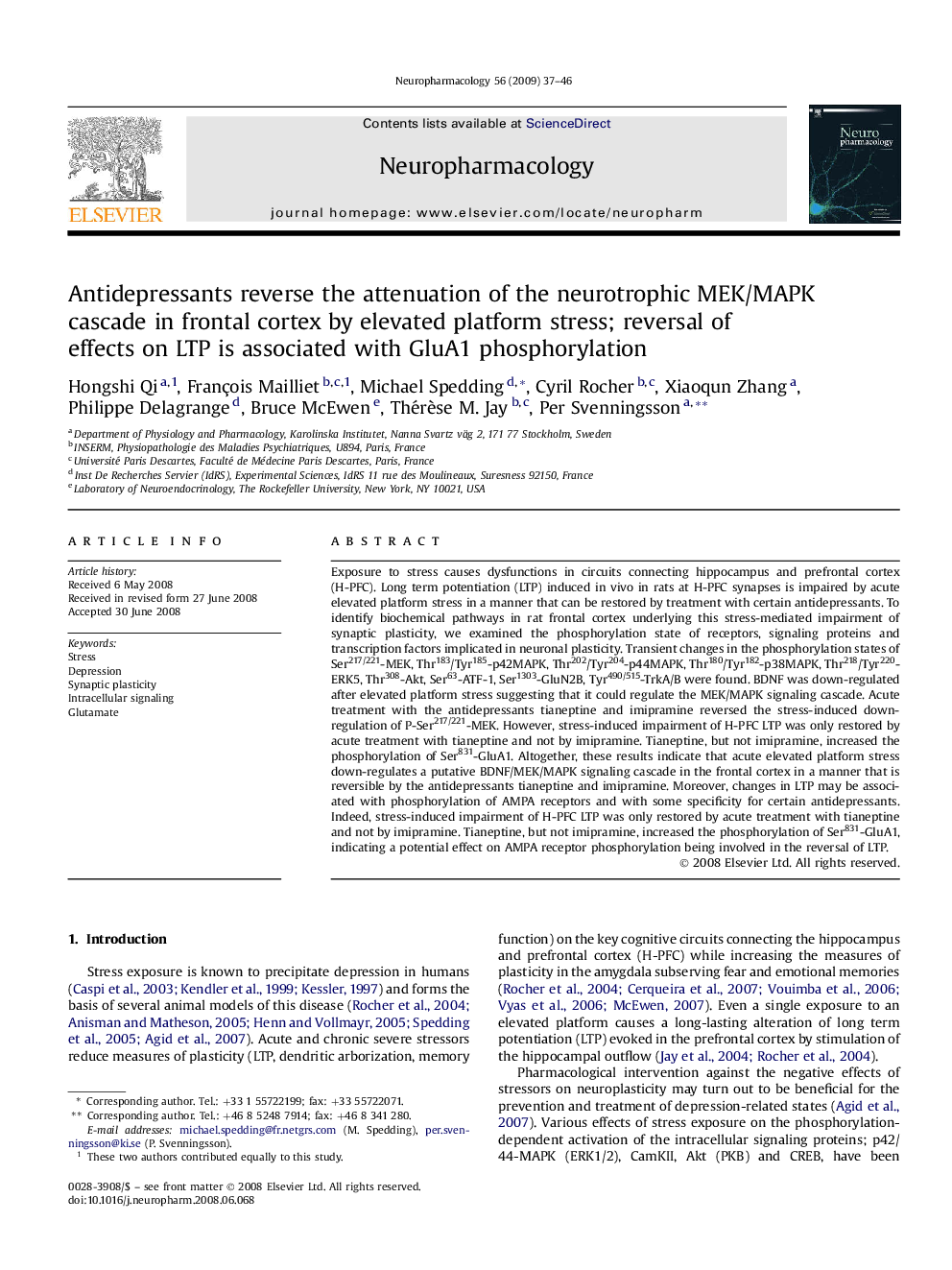| Article ID | Journal | Published Year | Pages | File Type |
|---|---|---|---|---|
| 5816151 | Neuropharmacology | 2009 | 10 Pages |
Abstract
Exposure to stress causes dysfunctions in circuits connecting hippocampus and prefrontal cortex (H-PFC). Long term potentiation (LTP) induced in vivo in rats at H-PFC synapses is impaired by acute elevated platform stress in a manner that can be restored by treatment with certain antidepressants. To identify biochemical pathways in rat frontal cortex underlying this stress-mediated impairment of synaptic plasticity, we examined the phosphorylation state of receptors, signaling proteins and transcription factors implicated in neuronal plasticity. Transient changes in the phosphorylation states of Ser217/221-MEK, Thr183/Tyr185-p42MAPK, Thr202/Tyr204-p44MAPK, Thr180/Tyr182-p38MAPK, Thr218/Tyr220-ERK5, Thr308-Akt, Ser63-ATF-1, Ser1303-GluN2B, Tyr490/515-TrkA/B were found. BDNF was down-regulated after elevated platform stress suggesting that it could regulate the MEK/MAPK signaling cascade. Acute treatment with the antidepressants tianeptine and imipramine reversed the stress-induced down-regulation of P-Ser217/221-MEK. However, stress-induced impairment of H-PFC LTP was only restored by acute treatment with tianeptine and not by imipramine. Tianeptine, but not imipramine, increased the phosphorylation of Ser831-GluA1. Altogether, these results indicate that acute elevated platform stress down-regulates a putative BDNF/MEK/MAPK signaling cascade in the frontal cortex in a manner that is reversible by the antidepressants tianeptine and imipramine. Moreover, changes in LTP may be associated with phosphorylation of AMPA receptors and with some specificity for certain antidepressants. Indeed, stress-induced impairment of H-PFC LTP was only restored by acute treatment with tianeptine and not by imipramine. Tianeptine, but not imipramine, increased the phosphorylation of Ser831-GluA1, indicating a potential effect on AMPA receptor phosphorylation being involved in the reversal of LTP.
Related Topics
Life Sciences
Neuroscience
Behavioral Neuroscience
Authors
Hongshi Qi, François Mailliet, Michael Spedding, Cyril Rocher, Xiaoqun Zhang, Philippe Delagrange, Bruce McEwen, Thérèse M. Jay, Per Svenningsson,
